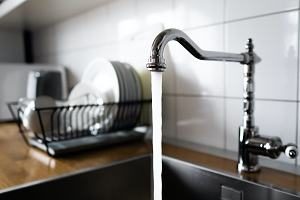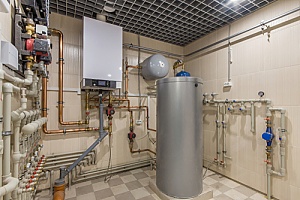 One of the most common ways humans come in contact with deadly bacteria is through showers and sinks with aerators. Properties such as hospitals, educational facilities, and residential buildings contain hot water recirculation systems that operate at the perfect temperature to breed bacteria. Because of this, individuals in these facilities are at risk of being exposed to legionella and other forms of bacteria that are considered dangerous. At Tower Water, we work to help commercial building owners protect their facilities from Legionella for their domestic hot water systems.
One of the most common ways humans come in contact with deadly bacteria is through showers and sinks with aerators. Properties such as hospitals, educational facilities, and residential buildings contain hot water recirculation systems that operate at the perfect temperature to breed bacteria. Because of this, individuals in these facilities are at risk of being exposed to legionella and other forms of bacteria that are considered dangerous. At Tower Water, we work to help commercial building owners protect their facilities from Legionella for their domestic hot water systems.
Obtaining Legionella Compliance
To obtain compliance and reduce the risk of legionella spreading throughout your domestic hot water systems, it is important to check that your systems can operate at specific temperatures. This applies to all aspects of the hot water systems, from sinks and showers to appliances that require water such as dishwashers. The systems may also need special treatment devices and fixtures to combat legionella and become compliant, depending on how the system is being utilized. Once safety measures are in place, it is equally important that you maintain the temperature of your systems to lower the threat of legionella forming in your systems.
Maintaining Domestic Hot Water Systems
There are several recommendations by the CDC for monitoring water quality and maintaining systems to prevent harmful bacteria such as legionella from accumulating. Since legionella has a better chance of growing between 77°F (25°C) and 108°F (42°C), the NIH advises that hot water systems remain above 124°F (51°C) and cold water systems remain below 68°F (20°C). Therefore, it is important to continuously monitor the temperature of the hot water systems and ensure that they do not fall below the recommended 124°F (51°C). While legionella can still survive at this temperature, it will significantly lower the possibility of further growth.
Testing Hot Water Systems For Legionella
 Regular testing of domestic hot water systems is recommended, approximately every 90 days, although not required by Local Law 77 of 2015 passed by the City of New York. This means that in order to maintain your systems and remain safe, you should receive quarterly legionella testing services. Tower Water uses sterilized bottles to test for legionella and sends samples to ELAP-approved laboratories to be inspected. Once the results have been determined, which generally takes up to two weeks, you will receive a report of your hot water systems and if legionella was present.
Regular testing of domestic hot water systems is recommended, approximately every 90 days, although not required by Local Law 77 of 2015 passed by the City of New York. This means that in order to maintain your systems and remain safe, you should receive quarterly legionella testing services. Tower Water uses sterilized bottles to test for legionella and sends samples to ELAP-approved laboratories to be inspected. Once the results have been determined, which generally takes up to two weeks, you will receive a report of your hot water systems and if legionella was present.
Speak With Tower Water For More Information
If you are a commercial building owner that wants to be proactive for their domestic hot water systems, we are happy to help. Tower Water has many years of experience reducing the risk of legionella in hot water systems and ensuring they are in compliance with NY laws. Furthermore, our team is committed to identifying, preventing, and mitigating dangerous bacteria in water systems to keep occupants safe. For more information about legionella compliance for domestic hot water systems, give us a call at (212) 729-9361 or schedule a consultation online to get started with Tower Water today.
